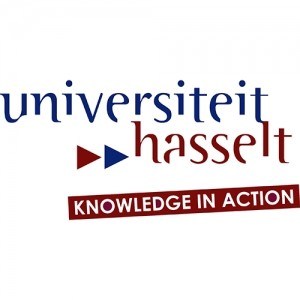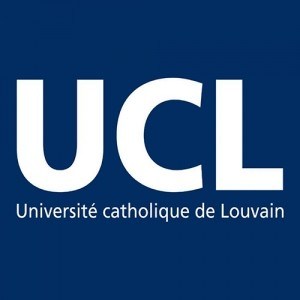Photos of university / #universitedeliege
The Aerospace Engineering program at the University of Liège offers an in-depth academic and practical education designed to prepare students for a challenging and dynamic industry. This comprehensive curriculum combines fundamental engineering principles with specialized knowledge in aeronautics and astronautics, providing students with the skills needed to design, analyze, and optimize aircraft, spacecraft, and related systems. Throughout the program, students engage with topics such as aerodynamics, propulsion systems, aerospace materials, structural analysis, control systems, and flight mechanics, enabling them to understand the complex interactions of aerospace vehicles within their operational environments. The program emphasizes the development of strong problem-solving abilities, innovative thinking, and technical proficiency, supported by state-of-the-art laboratories and simulation facilities. Students have opportunities to participate in research projects, internships, and collaborations with industry partners, which facilitate real-world experience and networking opportunities. Graduates of the Aerospace Engineering program are well-equipped for careers in aerospace industry sectors including aircraft manufacturing, space exploration, defense, and research institutions. They can pursue roles in design, development, testing, and project management, or continue with postgraduate studies. The program's interdisciplinary approach ensures graduates are adaptable, equipped with a broad knowledge base, and capable of addressing the technical challenges of modern aerospace engineering with creativity and rigor. The University of Liège maintains a strong emphasis on sustainability and innovation, preparing students to contribute to the development of environmentally friendly and technologically advanced aerospace solutions. Overall, the Aerospace Engineering program provides a rigorous and engaging educational experience, fostering the next generation of aerospace engineers dedicated to advancing aerospace technology and innovation.
The Bachelor of Science in Aerospace Engineering at the University of Liège offers a comprehensive curriculum designed to prepare students for a dynamic and innovative field. Our program covers fundamental principles of aeronautics and astronautics, providing students with a solid foundation in physics, mathematics, and engineering sciences. Throughout the coursework, students explore topics such as fluid dynamics, thermodynamics, materials science, structural analysis, and control systems, all tailored to the aerospace sector.
The program emphasizes a strong practical component, integrating laboratory work, project-based learning, and industry internships to ensure students gain hands-on experience. Students are encouraged to develop critical thinking and problem-solving skills through challenging projects that mimic real-world aerospace problems. The curriculum also includes courses on aerodynamics, propulsion systems, spacecraft design, and avionics, giving students a broad understanding of various aviation and space technologies.
In addition to technical expertise, the program fosters skills in teamwork, communication, and project management, essential for successful careers in aerospace industries. Students have access to state-of-the-art laboratories and simulation tools, enabling them to experiment and innovate in a controlled environment. The University of Liège’s strong connections with aerospace companies and research institutions provide opportunities for internships and collaborative research projects.
Graduates of the Aerospace Engineering program are well-equipped to pursue careers in aircraft design, space exploration, satellite technology, and related fields. They can also continue their studies at the postgraduate level, engaging in specialized research and advanced engineering projects. Our program aims to develop highly qualified engineers capable of contributing to technological advancements and sustainable solutions in the aerospace sector.
Programme requirements for the Aerospace Engineering Bachelor's degree at the University of Liège typically include a combination of prior academic qualifications, language proficiency, and possibly entrance examinations or interviews. Applicants are generally expected to have completed secondary education with strong academic results in mathematics, physics, and possibly technology or engineering-related courses. A solid foundation in mathematics, including calculus and algebra, is essential for success in this programme. Proficiency in English may be required for international students, often demonstrated through standardized tests such as TOEFL or IELTS, especially since some course materials and communications might be in English. Depending on the applicant's country of origin, specific diploma equivalencies or validation processes might be necessary to ensure admission eligibility. The university may also require applicants to submit a motivation letter outlining their interest in aerospace engineering and their career ambitions. In some cases, an interview or entrance exam may be part of the selection process to assess the candidate’s aptitude and motivation. Additionally, applicants must meet the general admission criteria of the University of Liège, which include compliance with national educational requirements for higher education entry. It is advisable for prospective students to review the specific admission procedures and deadlines on the university's official website or contact the admissions office directly. As the programme is designed to develop technical, scientific, and engineering skills, prior exposure to physics and mathematics during high school or previous studies is highly recommended. For international students, language requirements and visa procedures should also be considered well in advance. Overall, the readiness for rigorous study in physics and mathematics, along with a demonstrated motivation for aerospace engineering, forms the core of the programme requirements at the University of Liège.
The financing of the Aerospace Engineering program at the University of Liège is structured through a combination of tuition fees, government funding, and possible financial aid options. Tuition fees for international and local students are established annually by the university and are generally competitive within the European context. For Belgian residents, the tuition costs are subsidized by the government, significantly reducing the financial burden. International students typically pay higher fees, though these are still regulated and aim to reflect the cost of delivering the program.
Potential students can benefit from various financial aid options, including scholarships based on academic merit, need-based grants, and special funds for students from certain regions or backgrounds. The university collaborates with several national and international entities to offer scholarships dedicated to engineering students, which can cover partial or full costs of tuition and living expenses. Moreover, students may access student loans or work-study programs, allowing them to support themselves financially during their studies.
The university encourages students to seek external funding sources, such as Erasmus+ programs for mobility grants within Europe or bilateral agreements with partner institutions. Additionally, students engaged in research projects or internships related to aerospace engineering may receive stipends or stipends as part of their academic activities.
Overall, the financial structure aims to ensure accessibility and support for students pursuing aerospace engineering at the University of Liège, facilitating their academic success and professional development without undue economic hardship. Detailed and up-to-date information on tuition fees, scholarship opportunities, and financial aid programs are regularly updated on the university's official website and through the admissions office.
Aerospace Engineering at the University of Liège is a multidisciplinary programme that prepares students for careers in the design, development, testing, and maintenance of aircraft and spacecraft. The curriculum combines fundamental engineering principles with specialized courses in aerodynamics, thermodynamics, materials science, propulsion, flight mechanics, and control systems. Students gain a strong foundation in physics, mathematics, and computer science, enabling them to effectively analyze complex aerospace systems. The programme emphasizes practical training through laboratory work, simulation exercises, and project-based learning, often in collaboration with industry partners and research institutions. Students have access to state-of-the-art laboratories equipped with advanced instrumentation for aerodynamics testing, flight simulation, and materials characterization. The programme is designed to foster innovation, problem-solving skills, and technical expertise, preparing graduates for the challenges of the aerospace sector. In addition to technical coursework, students develop soft skills such as teamwork, communication, and project management, which are essential for their professional success. The university encourages international exchanges and offers opportunities for students to participate in internships and collaborative projects abroad, enhancing their global perspective. Graduates from the Aerospace Engineering programme at the University of Liège are well-equipped to pursue careers in aerospace industry companies, governmental agencies, research laboratories, and academia. They may work on the development of new aircraft and spacecraft, contribute to advancements in aeronautical technology, or engage in research related to sustainable aviation and space exploration. The programme aims to align with industry needs and technological advancements, ensuring that graduates are ready to meet future aerospace challenges.



